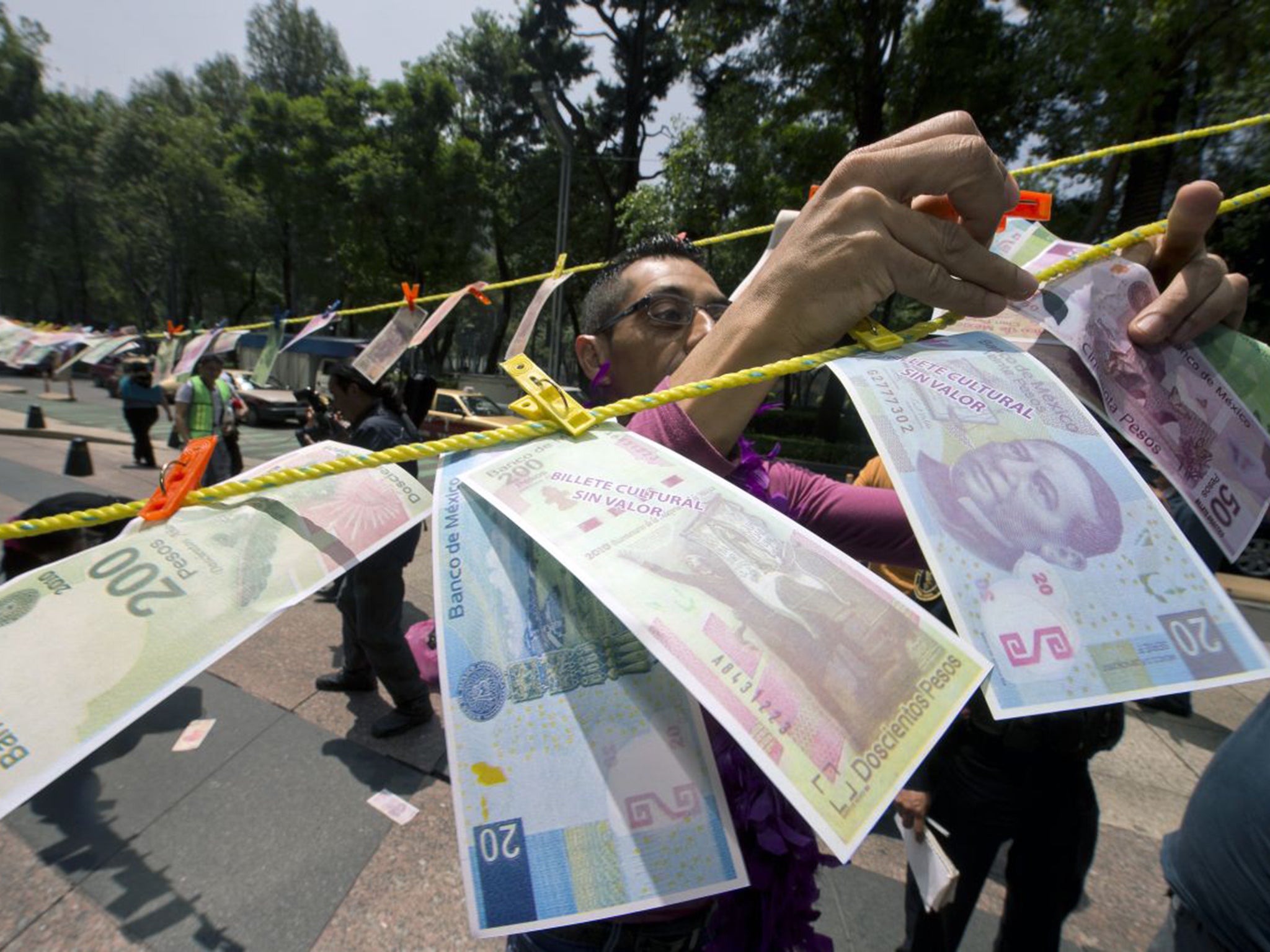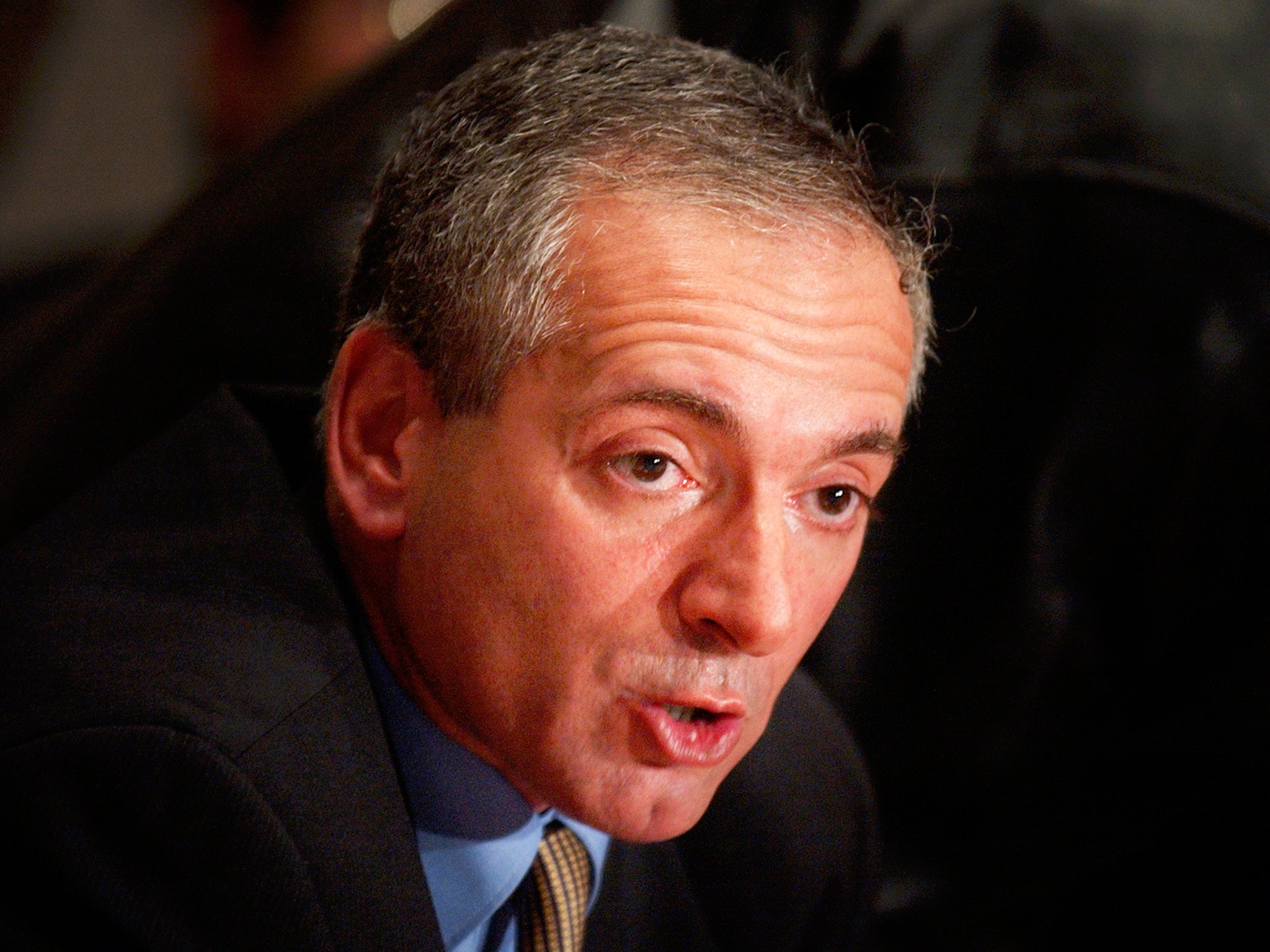Mexico's criminal gangs 'contaminating democracy' with money laundering activities that are going unchallenged
With criminal proceeds now being invested in political campaigns and public debt, the government is rendered guilty by association – and the country’s descent into a narco-state is complete

Your support helps us to tell the story
From reproductive rights to climate change to Big Tech, The Independent is on the ground when the story is developing. Whether it's investigating the financials of Elon Musk's pro-Trump PAC or producing our latest documentary, 'The A Word', which shines a light on the American women fighting for reproductive rights, we know how important it is to parse out the facts from the messaging.
At such a critical moment in US history, we need reporters on the ground. Your donation allows us to keep sending journalists to speak to both sides of the story.
The Independent is trusted by Americans across the entire political spectrum. And unlike many other quality news outlets, we choose not to lock Americans out of our reporting and analysis with paywalls. We believe quality journalism should be available to everyone, paid for by those who can afford it.
Your support makes all the difference.Criminal gangs are “contaminating democracy” in Mexico by funding political campaigns and even buying public debt to launder their dirty money, according to Edgardo Buscaglia, one of the world’s leading experts on international organised crime.
A senior research scholar in law and economics at Columbia University and the author of the new book, Money Laundering and Political Corruption, Dr Buscaglia told The Independent that a “pact of political impunity” inhibits Mexico’s government from combating financial crime.
“There is a relationship between dirty money in politics and the inaction and paralysis of the Mexican government,” he said. “The Mexican government does not take action in the cases of businesses involved in laundering drug money or other financial crimes [because] in some cases these businesses finance political campaigns at local, state and federal level.”
The US government estimates that over £19bn in laundered money crosses the border with Mexico each year, while the non-profit think-tank Global Financial Integrity estimates that more than £34bn in illicit funds flows out of Mexico every year, the third-highest total in the world after China and Russia.
Dr Buscaglia claims that the amount of money generated through political corruption in Mexico, including tax evasion, bribery, embezzlement and influence-peddling, surpasses even the vast sums generated by drug trafficking. He also warned that drug cartels have begun using front businesses to buy public debt in states with unusually high deficits such as Coahuila and Chiapas.
Dr Buscaglia urged Mexican and international authorities to do more to tackle money laundering, which facilitates not only drug trafficking, but also mass kidnappings, sexual slavery, extortion and widespread political corruption, among other crimes.
In recent years the US government has fined HSBC and Citigroup $1.9bn and $140m, respectively, after their Mexican subsidiaries violated anti-money laundering laws, yet no employees from either bank have faced criminal charges.
The international community must do more to put pressure on Mexico, Dr Buscaglia said, while Mexico itself must allow for greater public oversight of the auditing of government finances and campaign funds.
Over 1,000 members of the public attended the launch of Dr Buscaglia’s book at the Guadalajara International Book Fair earlier this month, a sign of the growing awareness and public anger at money laundering and corruption.
“I think it’s very important that we’re alert to what’s happening. I think society is tired of the vicious cycle of corruption in Mexico but if we want to change it we have to open our eyes,” Gabriella Martínez, a local marketing student, told The Independent.
Mexico’s second-biggest city, Guadalajara, prides itself as the home of tequila and mariachi music. In recent years it has also become increasingly associated with money laundering.
The US Treasury Department has sanctioned more businesses for money laundering in Guadalajara than any other city in Mexico. These include popular restaurants and nightclubs, luxury flats, shopping malls, beauty parlours, shoe shops, tequila companies, construction firms, petrol stations, pawn shops and even an ostrich farm.
While the US government can prohibit its citizens from doing business with blacklisted firms and seize any assets they hold under its jurisdiction, it cannot force the Mexicans to do the same.
Some businesses have shut up shop since being identified but many continue to operate and at least three Guadalajara petrol stations still have valid concessions with the Mexican government despite being blacklisted in the US. Other businesses that receive government subsidies are linked to relatives of the infamous Sinaloa Cartel boss, Joaquín “El Chapo” Guzmán, Dr Buscaglia noted.

Some Guadalajara natives are angry that criminals have been allowed to flood their city with drug money. “There are so many businesses here with dirty money behind them, especially the petrol stations, but the government never does anything about it,” said Raúl, a local Uber driver who asked that his surname be withheld out of concern for his safety.
However, local newspaper columnist Diego Petersen told The Independent that broad swathes of society, including sections of the media, business owners and the government, prefer to ignore the issue.
“There is great hypocrisy towards drug trafficking here because people reject the violence but they accept drug consumption and especially money laundering because it means a lot of money flows into the city,” he said.
Mr Petersen said Guadalajara became a major money-laundering hub after the biggest drug kingpins moved their families to the city in the 1980s and began to invest heavily in the local economy. The influx of dirty money created a trickle-down effect that has benefited many families in this city of over four million inhabitants.
“When criminal gangs are so deeply engrained in society it’s very difficult to avoid doing business with them. You might suspect someone’s laundering money but you never know for sure,” Mr Petersen added. “The problem is that there’s so many beneficiaries of money laundering that no one is interested in combating it.”
Join our commenting forum
Join thought-provoking conversations, follow other Independent readers and see their replies
Comments